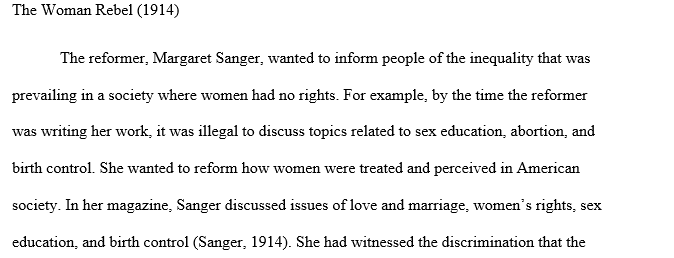Discussion Post
- Our Consciences are Becoming Tender”: Reform in the Progressive Era
Riis, J. (1900). Homeless People in New York. Encyclopædia Britannica ImageQuest.Module 2
This discussion addresses the following outcomes:
Examine a reform effort in the Progressive era and draw conclusions about the major tenets of Progressivism, its successes in national politics, and the limits of the movement (CO#1, CO#2, CO#5/Gen. Ed. Outcome 4.2)
Aware of the problems of a modern industrial, urbanized society, Progressivism shared some of the same sentiments as earlier reform movements, but differed in key ways. Progressivism was arguably the most successful reform movement of the late nineteenth and early twentieth centuries.
Despite its designation as a movement, Progressivism itself had diverse approaches and goals. In this discussion, you will discuss Progressivism’s origins, its ideology, and the impact of Progressive policies on American society. The purpose of this week’s discussion is to understand reformers in the late 1800s and early 1900s, and to put them in context of the Progressive movement.
Before you beginning this discussion, be sure to read the Module Notes and Chapter 20 “The Progressive Era (Links to an external site.)” in The American Yawp, and view The Progressive Era (Links to an external site.). Then select one of the primary source excerpts listed below:
Addams, J. (1892). “The Subjective Necessity of Social Settlements.” (Links to an external site.)
Dewey, J. (1916). Democracy and Education (Links to an external site.)
Rauschenbusch, W. (1907). Christianity and the Social Crisis (Links to an external site.).
Riis, J. (1890). How the Other Half Lives. (Links to an external site.) Also view the photographs. (Links to an external site.)
Sanger, M. (1914). The Woman Rebel (Links to an external site.).
Sinclair, U. (1905). The Jungle (Links to an external site.).
Steffens, L. (1904). The Shame of the Cities.
Using the primary and secondary source materials above as evidence, consider the following in a post of at least 250 words:
What elements of American society did the person you chose especially wish to reform, and why?
Was your chosen reformer’s agenda able to gain political traction and result in legislation? How and why (or why not)?
How did your reformer’s agenda fit into the larger Progressive era changes in American society?
Then, over the course of the week, respond to the posts of at least two of your classmates, including at least one person who chose a different reformers than you.
Your initial post must substantively integrate evidence from the assigned readings, including at least two full citations in proper APA (Links to an external site.) or Chicago (Links to an external site.) style.
Your initial post is due by Thursday at 11:59 PM. Your responses are due by Sunday at 11:59 PM.
287 Words
APA
